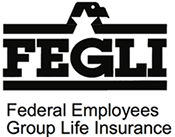Retirement Decisions

Members of the Armed Services
Two areas of concern for military members are the loss of SGLI upon separation and whether or not to elect the Survivor Benefit Program (SBP) at retirement. In particular, the decision process regarding SBP should be started at least 10 years prior to retirement so that all alternatives can be explored.

Different Options for Different Groups
FSI offers numerous solutions to fit the needs of the various groups which we serve.

Federal Employees
Federal employees face similar decisions as the military. Questions, such as whether to opt out of FEGLI Option B, what to do about their Survivor Annuity Option, and whether to do a rollover of their TSP at age 55. These are all important retirement planning decisions and should be carefully considered.
The Veterans Administration operates a number of programs providing financial, medical, and other assistance to veterans. For Americans who received an honorable or general discharge, there are 4 major benefit programs:
- Disability compensation
- Veteran's pension programs
- Free or low-cost medical care through VA hospitals and medical facilities
- Education Programs
Employees have a myriad of information to gather and choices to make regarding their health care, voluntary benefits, and retirement plan options. This can be a daunting task. Finding a balance between eliminating debt and saving for the future is one of the most important decisions they will face.

Final Expense Solutions
Learn more about Final Expense Plan options to avoid burdens on your loved ones. See the special Smart Consumer Group page at Understanding Final Expense
Employers & Business Owners
Leveraged Retirement Plans
We facilitate individualized, personalized, and proprietary retirement programs. A business owner may have the ability to drastically advance their wealth accumulation relative to their retirement planning efforts in a highly tax advantaged manner. Read more.

